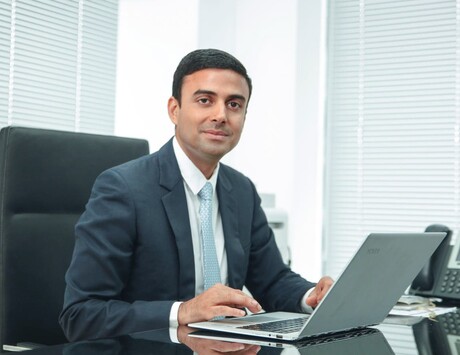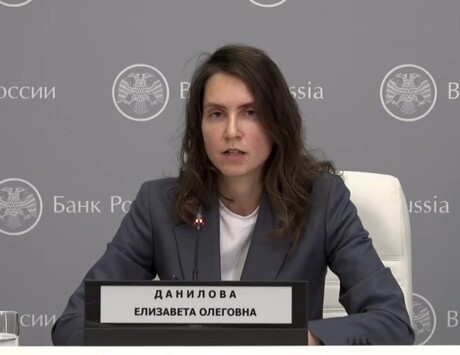The Russian elections take place against a backdrop of constant intimidation of those who dare to speak out against the country's slide into autocracy. This includes my father, Alexander Lebedev. The only Kremlin-operated institution that is yet to turn up at his door is the Russian army. The police, FSB, central bank apparatchiks, tax authorities, emissaries from the prosecutor general's office and even the fire brigade have been hounding him. They don't like the fact that, with Mikhail Gorbachev, he publishes Novaya Gazeta, the only opposition paper of any influence in the country, which has played an active role in rallying protesters. The Kremlin seems not to care about what prospective investors in Russia's economy will make of this. Nor does it care that, in the digital age, it is easier to generate international solidarity than ever before.
It would be wrong, however, for western critics of the Kremlin to pretend there has been no progress in Russia. Compared with 20 years ago, many people's material wealth is vastly improved. Salaries are paid on time, pensions arrive and inflation has been kept down. This is what ordinary folk care about, more than reforming the institutions of the state, free elections or opening up Russia's economy. On top of that, Vladimir Putin faces no serious opposition movement. Nor is there any leader for democrats to rally round. That is why he will win. Once re-elected, Putin faces a fork in the road: political reform, fighting corruption and nurturing democracy; or tightening the screws and stifling freedoms. Which way will he turn?
Hell on earth
A fortnight ago I was in and around Mogadishu, on the front line of the battle against al-Shabaab. The trenches there reminded me of the vivid images of the Somme I have read and seen: all guns, barbed wire and sandbags, not tanks or 21st-century hardware. Both the prime minister and president were cautiously optimistic when I interviewed them. Since the fall of Siad Barre in 1991, the country has been plagued by famine, civil war, piracy in the seas to the east and militant Islamism inland. Mogadishu, the alleged capital, is routinely described as the most dangerous and lawless place on earth. There is not the faintest semblance of law and order, and none of the foundations of civic society show any sign of emerging. No law courts, scant property rights, schools, or public services, still less a free press. Almost every week you hear of a journalist being murdered. According to the CIA, the median age is 17.8 years old (in Britain it is 40).Most Somalis have never known anything but strife. To make Somaliasafe and prosperous, most of its people cannot call on memories. They have not only to create something they have never known, but imagine it, too.
Mock Jesus
At the end of the week I was in Tunisia to interview the prime minister, a former dissident who had been jailed for 17 years. I asked his view of the film Persepolis, set against the backdrop of the Iranian revolution. One of the film-makers faces trial for blasphemy and "violating sacred values" for showing a representation of God. This was an "act of cultural violence", the prime minister said, "worthy of a strong response". I pointed out that in the west we don't tend to lynch the creators of South Park when they mock Jesus but unfortunately he hadn't seen it. Later we held a Journalism Foundation event inTunisia. Academics from City University in London gave seminars to young Tunisian journalists as part of a two-day programme, which culminated with Robert Fisk delivering a lecture in flawless French on the Arab awakening. Students came up to us to say how grateful they were that we had joined their battle for a free press in the Middle East. This struck me as evidence that the dignity and power bestowed by free expression are universal human needs.
Empty headed
Friends have asked what I think of the Sunday edition of the Sun. My response is that it doesn't make me think. It's not a thinking person's paper. The exclusive front-page interview with Britain's Got Talent judge Amanda Holden and the presence on page three of X Factor judge Kelly Rowland, topless, above a smirking Simon Cowell, suggests its editor, Dominic Mohan, knows how much he will be relying on Saturday-night TV for material. Most amusing was John Sentamu's column, in which he lauded "new beginnings". He misquoted Pope - injecting an extra "is" into "to err is human, to forgive, divine" - and cajoled us "to turn our back on what has gone before". I enjoyed his protests against Mugabe but asking us to give up criticising News International for Lent is pushing it.
i was right
Long before my family became involved with The Independent titles, I noticed that its staff had to contend with an unusually high degree of abuse from competitors. When we said in October 2010 that we were going to launch i, a 20p version of the Independent, our competitors dismissed the idea as lunacy, much as they had (wrongly, it turns out), dismissed our idea of taking the London Evening Standard free. Yet last week, i was united with the Guardian in being nominated for newspaper of the year. The main difference is that i sold 215,000 copies on Tuesday, whereas the Guardian sold around 30,000 fewer. I know staff at the Independent titles rightly take satisfaction at having proved our competitors wrong, and so do I.
Seaside treats
Last weekend I had to choose between flying to Los Angeles for the Oscars, or driving to Blackpool. Naturally I chose the latter. We saw an exhilarating cabaret production at Funny Girls, one of the town's star attractions. A sparsely populated 1970s concert hall, where the average age was about 80, cheered as butch transvestites danced to Abba classics and twirled pompoms and peacock feathers. It felt somewhere between a lost world of vaudeville and Peter Kay's magnificent Phoenix Nights. For £14 you get the best seats in the house and a flirtatious waiter (ours may have been a eunuch). Damp seaside towns will always be among the great thrills of England and they beat cavorting with the giant egos of LA any day.
Evgeny Lebedev is the chairman of Evening Standard Ltd



